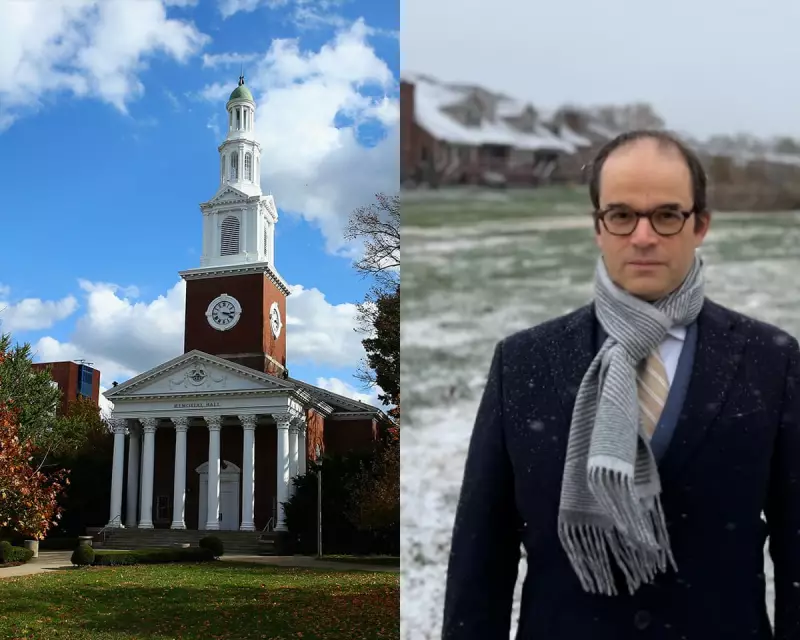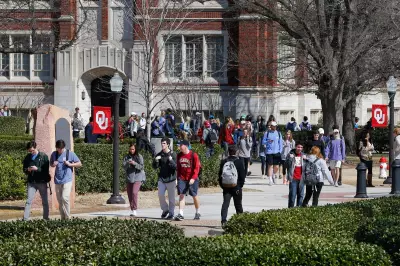
Professor Banned from Campus Over Controversial Israel Views
A tenured law professor has taken legal action against the University of Kentucky after being prohibited from teaching and accessing the law school building due to his comments about Israel. Ramsi Woodcock, an antitrust scholar recently promoted to full professor, filed a federal lawsuit on Thursday alleging the public university violated his First Amendment and due process rights.
The controversy began in July when the university abruptly placed Woodcock under investigation just days after his promotion. The investigation centres on allegations that he violated university policy, including anti-discrimination rules that incorporate the contentious International Holocaust Remembrance Alliance (IHRA) definition of antisemitism.
Legal Challenge to IHRA Definition
This lawsuit represents a significant development in the growing backlash against universities employing the IHRA definition. Numerous faculty members at both private and public institutions have faced investigations - with some losing their positions - over criticism of Israel characterised as antisemitic. Woodcock's case marks the first constitutional challenge against the IHRA definition's application to criticism of Israel under federal Title VI anti-discrimination protections.
University spokesperson Jay Blaton clarified that Woodcock hasn't been suspended but rather "reassigned" pending the investigation's outcome. However, the professor cannot teach, advise students, attend faculty meetings, or enter the law school building. According to the lawsuit, his professional development activities remain his only permitted work responsibility.
The legal filing argues that "Title VI does not and cannot constitutionally prohibit criticism of Israel." It further contends that "to the extent that the IHRA definition prohibits calling for the dismantling of colonial state structures, prohibits legal scholars from debating the contours of the right of self-determination, prohibits allegations of race discrimination, and prohibits allegations of genocide, the IHRA definition is unconstitutional."
Controversial Statements Test Free Speech Boundaries
Woodcock's criticism extends beyond mainstream perspectives on Israel. Even defenders of his free speech rights acknowledge his views could be interpreted as supporting violence against Israelis. A petition from the Antizionist Legal Studies Movement, which he founded, demands that "every country in the world make war on Israel immediately and until such time as Israel has submitted permanently and unconditionally to the government of Palestine everywhere from the Jordan River to the Mediterranean Sea."
When the investigation began, University President Eli Capilouto publicly denounced the petition as "calling for the destruction of a people based on national origin" and suggested it threatened campus safety - characterisations Woodcock strongly rejects.
In September, the university brought additional charges accusing Woodcock of creating a "hostile environment" and "calling for violence against Israel, the genocide of Israeli people, and the ultimate destruction of Israel in a manner that uses antisemitic tropes."
Woodcock responded by noting that more than 80 Western colonies ended during the 20th century. "Does President Capilouto really believe that each involved the destruction of a people rather than the liberation of one?" he questioned.
University Defends Its Position
Blaton stated that while individuals have expression rights, "the university has the right to express itself as well." He explained that "if someone's views as stated threaten the safety and well-being of the university's students and staff, we are obligated to act to protect our community and our people. That's clear under Title VI of the federal Civil Rights Act of 1964."
Attorneys from the Council on American-Islamic Relations, representing Woodcock, maintain the petition constitutes protected speech. Deputy litigation director Gadeir Abbas argued that had Woodcock spoken similarly about any other nation, including the United States, "he would have been free to do as he pleases. But because it's about Israel, the University of Kentucky has given into the hysteria."
The investigation originated from complaints by individuals outside the university regarding Woodcock's statements at off-campus academic conferences, on his website, and in private Association of American Law Schools chat groups. Attorney Farnaz Farkish Thompson, who contributed to the conservative Project 2025 blueprint, leads the investigation.
Political Backdrop and Academic Freedom Debate
The case unfolds against a political backdrop where the Kentucky state senate adopted a resolution in April directing public schools to combat antisemitism using the IHRA definition. State legislators quickly endorsed the university's investigation, with Republican Senator Lindsey Tichenor, who co-sponsored the resolution and co-chairs the Kentucky-Israel caucus, stating that while Kentuckians expect free debate, "when speech crosses the line into targeted hate, institutions must act."
The lawsuit also alleges the university violated its own protocols by suspending Woodcock without demonstrating "immediate harm." According to the suit, the institution revoked this policy after Woodcock complained about its violation, though the university denies any connection to his case.
Woodcock firmly rejects suggestions that his views endanger campus safety. He maintains that his calls for military intervention against Israel and his position that Palestinians alone should determine Palestine's future align with viewing Israel as a colonial project. As someone of Algerian heritage, he frequently references Algeria's experience ending French colonial rule.
"If Israel has a right to exist, then French Algeria had a right to exist, and the British Raj had a right to exist," Woodcock told The Guardian.
While rejecting antisemitism accusations, Woodcock confirms his view of Israel as a colonising power means the state should be brought "to an end." He believes Palestinians alone should decide the land's future, including "the legal status of the coloniser population," though he suggests Palestinians would likely "grant equal rights to the coloniser population."
Colleague Support Despite Disagreement
Alvin Goldman, a retired University of Kentucky law professor and self-described "lifelong Zionist," emerged as an unexpected advocate for Woodcock's free speech rights when the investigation began. Goldman strongly disagrees with Woodcock's colonial framework and agrees the views might be interpreted as calling for destruction based on national origin. However, he maintains "that of itself is not grounds for a state university to discipline or dismiss a professor."
In a faculty letter sent after Woodcock's suspension, Goldman wrote that while calls for Israel's destruction prompt emotional responses, including his own, they don't constitute "fighting words" in Woodcock's academic context. He urged administrators to reverse their decision and instead sponsor debate opportunities.
"Unfortunately, in the years since I began teaching, faculty have become more and more divorced from the principles of academic freedom," Goldman observed. He concluded that while Woodcock's calls for Israel's "end" are wrong, "He is entitled to be wrong."
This case continues to test the boundaries between academic freedom, protected speech, and institutional responsibility in American higher education.





